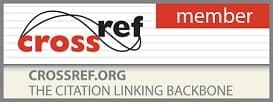Vol. 7, Issue 3, Part B (2024)
Pharmacotherapeutic profile, anthropometric and dietary analysis of Military Firefighters in Itumbiara, Goiás, Brazil
Author(s):
Fernanda Vieira Fonseca, Vinicius Eduardo Farias Silva, Kemylle Rodrigues Faria, Gabriela de Oliveira Silva, Julia Mayumi Pereira Fuzinaga, Carla Roberta Silva Pereira, Daniel Rodrigues Silva, Amanda Nunes Vasconcelos, Ana Cecilia Carneiro Dias, Lorena Souza Castro, Winnicius Pereira Ferreira Santos, Thiago Santos Borges, Endyi Daniele Rodrigues Silva, Laura Borges Ferreira, Thalia Lopes Sena de Sousa, Vitória de Aguiar Tiradentes Daher, Ana Júlia dos Santos Peres, Roberta Neves Domingues, Vitória Martins Arruda and Edvande Xavier dos Santos Filho
Abstract:
Military firefighters operate in contexts where the effectiveness of their responses depends on immediate and integrated actions developed under various risks, and where superior performance is, in most cases, related to their physical and nutritional state. Thus, anthropometric, dietary, and pharmacotherapeutic profile analyses are primary approaches that this study aimed to carry out on active-duty volunteers stationed at the 6th Battalion of the Fire Department in the city of Itumbiara, Goiás, Brazil. After approval by the Ethics Committee and following current regulations, 24 firefighters were interviewed and examined in May 2024. The sample consisted of men aged between 33 and 59 years, predominantly individuals with brown skin, with an average height of 1.75 meters and an average weight of 87.48 kg, and an average BMI of 28.25. The majority were married, non-smokers, consumed alcohol occasionally, had higher education and practiced physical activity regularly. Chronic conditions such as hypertension and dyslipidemia were low, but mental stress was reported by half of the participants. About 37% of the firefighters used medications in monotherapy and/or polytherapy, with more than two-thirds of these prescribed by doctors, low occurrence of side effects, and no adverse reactions. Their job functions were mostly operational and correlated with greater professional fulfillment and lower stress. All analyses P<0.05. The data highlight the importance of personalized health promotion strategies to improve the well-being of these professionals who are so important to society.
Pages: 94-104 | 1227 Views 364 Downloads

How to cite this article:
Fernanda Vieira Fonseca, Vinicius Eduardo Farias Silva, Kemylle Rodrigues Faria, Gabriela de Oliveira Silva, Julia Mayumi Pereira Fuzinaga, Carla Roberta Silva Pereira, Daniel Rodrigues Silva, Amanda Nunes Vasconcelos, Ana Cecilia Carneiro Dias, Lorena Souza Castro, Winnicius Pereira Ferreira Santos, Thiago Santos Borges, Endyi Daniele Rodrigues Silva, Laura Borges Ferreira, Thalia Lopes Sena de Sousa, Vitória de Aguiar Tiradentes Daher, Ana Júlia dos Santos Peres, Roberta Neves Domingues, Vitória Martins Arruda and Edvande Xavier dos Santos Filho. Pharmacotherapeutic profile, anthropometric and dietary analysis of Military Firefighters in Itumbiara, Goiás, Brazil. Int. J. Adv. Community Med. 2024;7(3):94-104. DOI: https://doi.org/10.33545/comed.2024.v7.i3b.329








